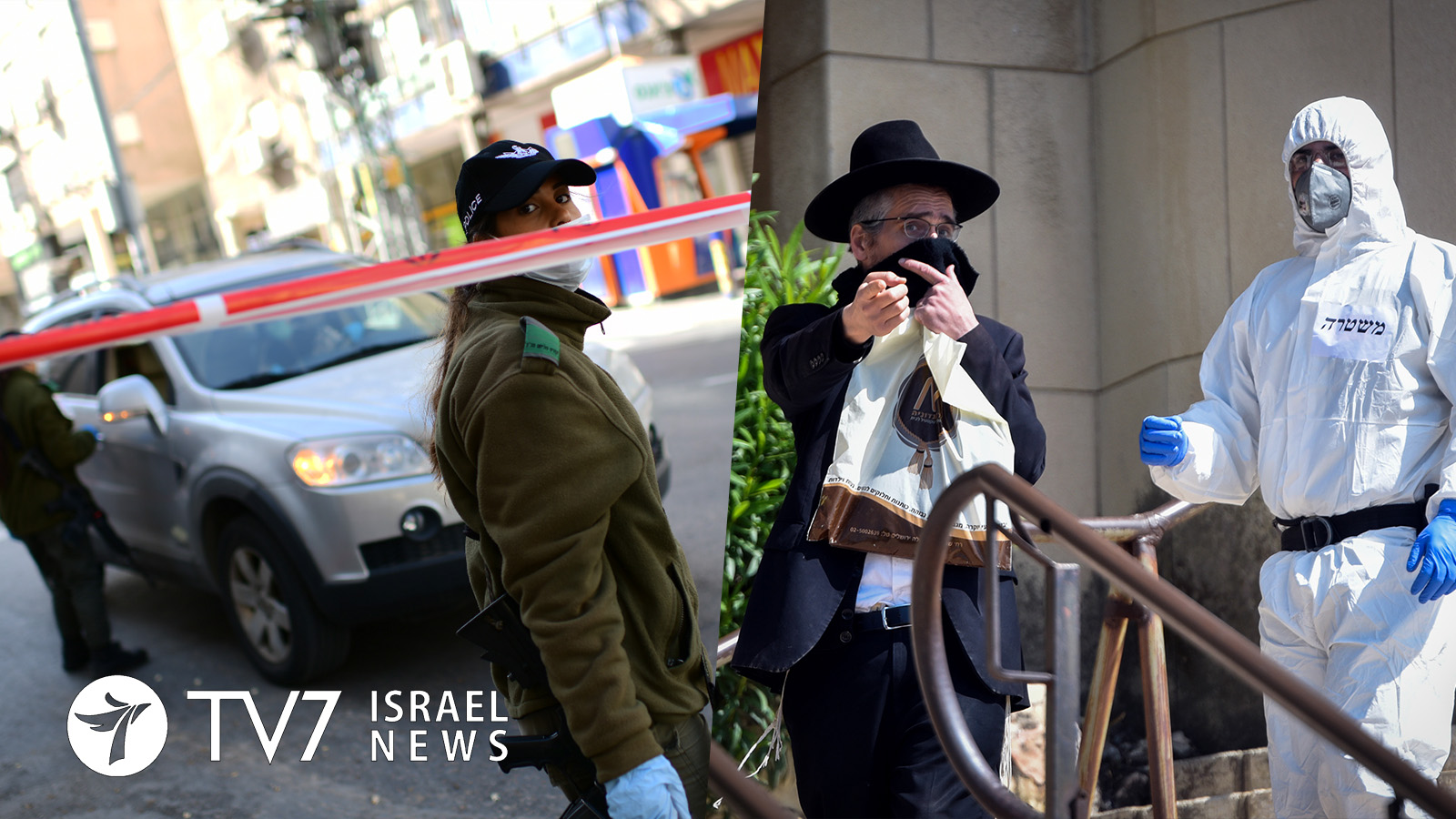Drastic preventative measures continue to be stepped up in Israel as the coronavirus relentlessly spreads nationwide. The number of confirmed cases has risen to 7,030 people, of whom 115 are in critical condition. Four more citizens succumbed to the disease, raising the death toll to 37.
A ministerial committee chaired by Prime Minister Benjamin Netanyahu declared Bnei Brak as a “restricted area,” following a mass COVD-19 outbreak in the predominantly ultra-Orthodox city. The move facilitated the deployment of a large number of police to blockade the central city early this morning. According to Police Superintendent Tsa’ada, after 7 AM no one has been permitted to enter or exit, unless it is for humanitarian purposes.
The IDF Home Front Command has begun the relocation of coronavirus-carriers from Bnei Brak homes deemed as unsuitable for self-quarantine, while troops also evacuated several thousand at-risk elderly residents. According to Israel Police District Commander Shlomi Sagi, the precautionary step “is a civilian task, conducted in cooperation with the municipality.”
Israel’s ultra-Orthodox communities have been subject to mounting criticism by the general public for failure to observe governmental decrees to curb COVID-19. Cmdr. Sagi said, however, that “Most of Bnei Brak’s residents are law abiding citizens who adhere to the emergency measures,” and that the police have only had to deal with “a small group of people.” He said that two religious seminaries were fined for holding mass prayer yesterday, but insisted that only a small margin are refusing to comply with the restrictions against large gatherings.
The IDF Home Front Command has also launched a nationwide operation to assist the elderly population in other areas, who are in dire need of essential commodities and medicine. According to Brig.-Gen. Amit Bar, the Israeli military is helping local authorities in supporting vital logistics, including distribution of food. “It is important to us that before Passover, but also in routine activity, that there will be no hungry people in their homes, and that everyone will get everything they need,” he said.
Gen. Bar further noted that “it is important to us” to ensure 500 Holocaust survivors known to be impoverished will receive special packages to help them celebrated the upcoming Passover festival.
While Israeli decisionmakers and enforcement authorities are making every effort to limit the spread of the coronavirus and accommodate the growing needs of the quarantined Israeli public, those entrusted to care for the victims are feeling the pressure of the rising death. “We don’t know what to expect, we don’t know how many dead we will have to tend to, there are really many fears in this regard,” mortician Yakov Kurtz told Reuters, expressing his hope that the sacred mission is carried “in the best way possible, in the most professional and respectful manner for the deceased, for the family and for us.”
According to the Chairman of the national “Hevra Kadisha” Jewish burial organization, Avraham Manela, victims are now being laid to rest in “impermeable nylon so we don’t endanger funeral participants and the family of deceased” as they bid their loved ones farewell. “It also prevents risking funeral participants or the people who drive the deceased or further treating the body,” he explained.
